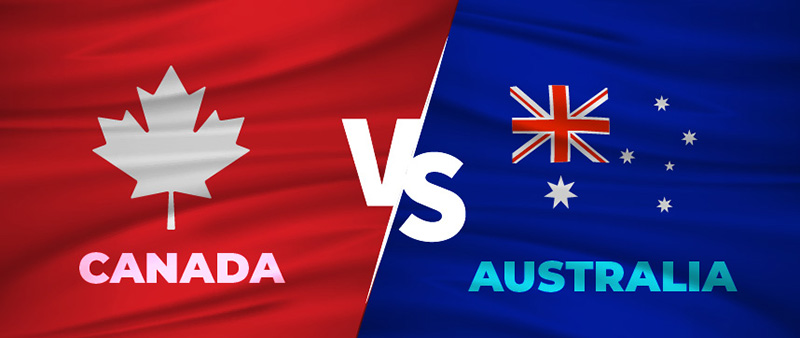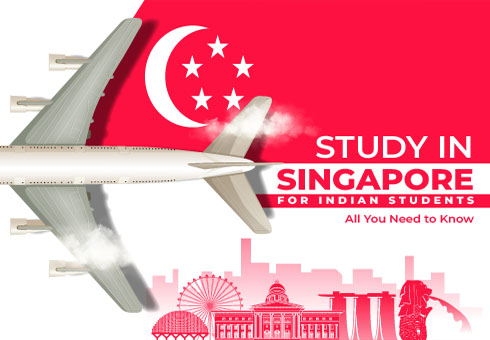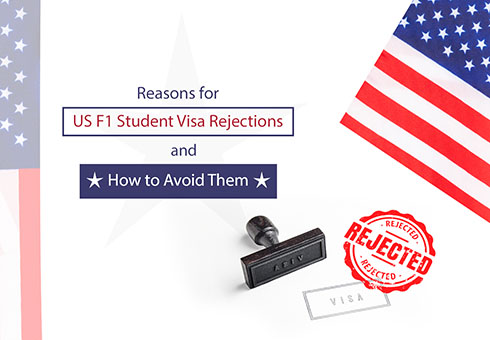
Study in Canada & Australia
CANADA VS AUSTRALIA - which is better for Indian students?
More and more students have recently started studying abroad for their higher education, whether it be their bachelor’s degree, master’s degree, or a PhD. Studying abroad allows you to enter an entirely different academic system, which challenges you and helps you improve many skills that will be very useful for your future. The US and the UK are popular study-abroad destinations, but newer destinations such as Canada and Australia are also gaining popularity.
Courses offered in both countries range from STEM to humanities to arts, management, finance, and more. You have an abundance of options and subjects in which you can earn your degree, both in Canada and Australia.
STUDYING ABROAD
More and more students are choosing Canada as a destination to study abroad. It offers a relatively low cost of living, a highly diverse and multicultural community, lower tuition costs in comparison to places like the USA, and great safety and security. Universities in Canada are filled with the best of the best, in terms of the facilities, the research, and the professors who teach the subjects.
Australia is another country that has emerged as a popular destination for studying abroad in the past few years. Australia is a cultural melting pot, with people from all around the world residing there. With low tuition costs and relatively cost, it is a really attractive destination to do your studies in. Australian universities place a lot of emphasis on research and development. This means that right from your Bachelor’s degree, you are exposed to academic research. This helps in developing and gaining many skills.
Table: Top Universities in Canada 2023, Times Higher Education Ranking
| AUSTRALIA | CANADA | ||
|---|---|---|---|
| University Name | THE Ranking | University Name | THE Ranking |
| University of Melbourne | 34 | University of Toronto | 18 |
| Monash University | 44 | University of British Columbia | 40 |
| The University of Queensland | 53 | McGill University | 46 |
| University of Sydney | 54 | McMaster University | 85 |
| The Australian National University | 62 | University of Montreal | 111 |
| UNSW Sydney | 71 | University of Alberta | 118 |
| University of Adelaide | 88 | University of Ottawa | 137 |
POPULAR DEGREES
Courses offered in both countries range from STEM to humanities to arts, management, finance, and more. You have an abundance of options and subjects in which you can earn your degree, both in Canada and Australia.
| AUSTRALIA | CANADA |
|---|---|
| Popular Subjects | Popular Subjects |
| Nursing | Engineering courses |
| Computer Science/Engineering | Computer science and IT related courses |
| Cybersecurity | Biology, chemistry and medicine |
| Architecture | Media and journalism |
| Accounting | Film and Film Theory |
| Social Work | Arts and humanities |
COST OF STUDY IN CANADA
When you’re planning to study abroad in Canada, you must begin by calculating what is going to be your cost of study. This can include a variety of other costs within it and they are as follows
- Application Fees: These can range from anywhere between $50 to $100 CAD. Application fee waivers can be requested depending on your financial circumstances.
- Standardized Testing Fees: To apply for either your Bachelor’s, Master’s or PhD, there are certain standardized testing requirements. These tests include SAT, AP exams, GRE/GMAT etc. The costs for these tests usually range from $60-$160. However, some universities may not even require them.
- English Language Test Fees: To study in Canada as an international student, you may also have to sit for English language tests such as TOEFL, IELTS, PTE etc to prove your proficiency. The costs for these tests usually range from $160-$180. In case you fulfil certain criteria, you can be exempted from giving these tests.
- Visa Fees: The cost of a Canadian student visa is $150 CAD. There is an additional fee of $85 dollars for biometrics.
- Tuition Fees: Tuitions fees in Canadian universities can range from $15,000 CAD to $25,000 CAD depending on the course and university you go to. Universities also offer a range of scholarships that can help cover the cost of tuition.
- Other important costs to keep in mind are the cost of accommodation, travel costs, cost of textbooks, phone bills, other miscellaneous costs etc.
- It is important to note that the cost of living in Canada must be calculated depending on your own lifestyle.
COST OF STUDY IN AUSTRALIA
When you’re planning to study abroad in Australia, you must begin by planning and calculating what is going to be your cost of study. This can include a variety of other costs within it and they are as follows
- Application Fees: These can range from anywhere between $70 to $100 AUD, depending on your university. Universities can give application fee waivers depending on your financial circumstances.
- English Language Test Fees: To study in Australia as an international student, you may also have to sit for English language tests such as TOEFL, IELTS, PTE etc to prove your proficiency. The costs for these tests usually range from $160-$180. However, in certain cases, you can gain an exemption from giving these tests.
- Visa Fees: The cost of an Australian student visa is $650. There may also be additional costs for medical tests and biometrics.
- Tuition Fees: Tuitions fees in Australian universities can range from $20,000 to $30,000 depending on the course and university you go to. Universities also offer scholarships that can cover partial, half or full tuition costs. Other types of scholarships may also be able to help you cover costs of accommodation.
- Other important costs are the cost of accommodation, travel costs, cost of textbooks, phone bill, other miscellaneous costs etc.
- When you’re calculating the cost of living in Australia, it is best to do it depending on your own lifestyle.
POST-STUDY WORK OPPORTUNITIES
Canada
Canada offers the Post-Graduation Work Permit Program (PGWPP), which allows students who have graduated from eligible Canadian designated learning institutions (DLIs) to obtain an open work permit to gain valuable Canadian work experience. To qualify for permanent residency in Canada, work experience must be gained through PGWPP in National Occupational Classification (NOC) skill type 0 or skill level A or through the Canadian experience class within Express Entry.
The validity of the PGWP can range from eight months up to a maximum of three years.
Australia
Australia offers different types of visas if you wish to stay on and work after graduation. You should apply for this visa for your student visa expires. The different types of visas available post-graduation are:
- Temporary Graduate Visa (subclass 485-Post Study Work Stream): With this visa, you can stay in Australia and work for a period of 2 to 4 years after graduating from an Australian university
- Temporary Graduate Visa (subclass 485-Graduate Work Stream): As long as you have graduated from an Australian university, with skills that are listed in the skilled occupations list, you are eligible to apply for this visa. The time period on this visa lasts from 18 to 24 months.
- Skilled Recognized Graduate Visa (subclass 476): This visa is specifically for engineering graduates from Australian institutes. This visa lasts for a period of up to 18 months.
CONCLUSION
Both Canada and Australia have recently emerged as popular destinations for studying abroad due to many factors, including but not limited to, a lower tuition cost, relatively low cost of living, diversity in the courses offered, and the multicultural nature of both countries.
In the end, it is your choice that will take you where you want to go. Canada and Australia are incredible destinations, and going to either country will be very advantageous for you.
For more updates, follow us on-





